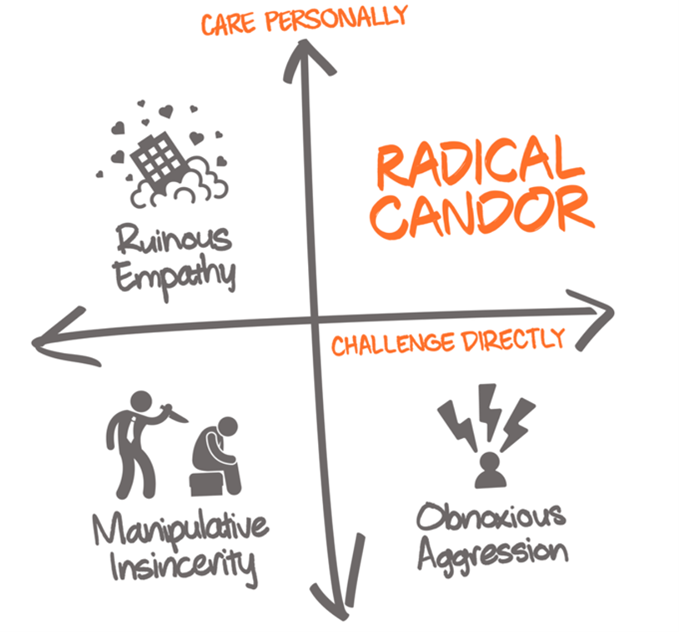How to have tough conversations without compromising the relationship
I work with leaders all around the world at all levels of organisations. One thing they have in common is that they find having tough conversations is challenging.
Intrinsically human beings want to connect and be liked. The thought of upsetting someone by criticising them directly puts most leaders off, and they tend to ‘fluff up the issue’ or avoid the conversation altogether. I also see leaders who have a very direct approach in giving feedback, but it doesn’t always land well and is ineffective.
I was coaching two team members of an intact team in China and both had problems with tough conversations. One, Amy, had a great relationship with her team and knew them on a deep level. She found it challenging to give negative feedback in fear of damaging the relationships. The other one, Patrick, had a relatively new team, gave feedback all the time - but behaviour and results were not changing.
Both of them were missing something in their approach to master tough conversations: they didn’t use radical candor!
Kim Scott explains in her model and book how radical candor helps to nail tough conversations:

According to Scott, you need to apply both caring personally AND challenge directly to achieve radical candor:
- Care personally: bring your whole self into the relationship, have your team member’s back, show support, be interested in their work and personal life.
- Challenge directly: be direct in your conversations, with both positive and negative messages. Immediate and direct, in the moment feedback.
You can see in the model that when you don’t challenge directly (over and over again) you create ‘ruinous empathy’. That’s what was happening with Amy leadership style. She had the relationship and trust of her team, but she either avoided critical feedback or softened her message and often ‘fluffed it up’. It’s not helpful because our team members rely on feedback to deliver results.
For Patrick, it was the opposite. He challenged directly and frequently, but he hadn’t built the relationships and trust with his team. His style was perceived as being obnoxiously aggressive.
In our coaching program, Amy worked on her feedback loop and adopted tools and skills to challenge her team more, and Patrick started having more personal conversations and got to know his team members and their fears and motivators.
Tough conversations through radical candor require both the relationship and trust as well as direct and consistent feedback.
How does DISC help with tough conversations?
DISC is a behavioural assessment that helps people to have better conversations and create more effective relationships. Being aware of our own natural preference of communicating, making decisions and giving feedback and understanding how to lean into other people’s preferred style builds one foundation of radical candor.
When people feel understood, they trust us and building trust is part of caring personally. We can also land our direct message and feedback when we know how the other person best receives it. For example with someone who is a D style we can be fairly direct and to the point, even creating some friction. Whereas with someone who has a C style, we want to give them time, be objective and be very detailed in our reasoning.
The fundamentals of radical candor, caring personally and challenging directly, are the same but the delivery and application is tailored to the high natural behaviour preference of our team member or counterpart.
To get a deeper look into what motivates and stresses people with different behaviour styles, download our e-book here:
Click Here to Download
If you want to bring the power of DISC Flow into your organisation or coaching practice, our upcoming certification dates are listed below. Places are limited, so enrol now to join us.












